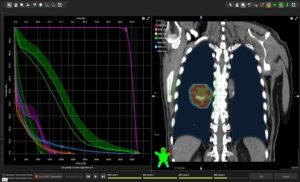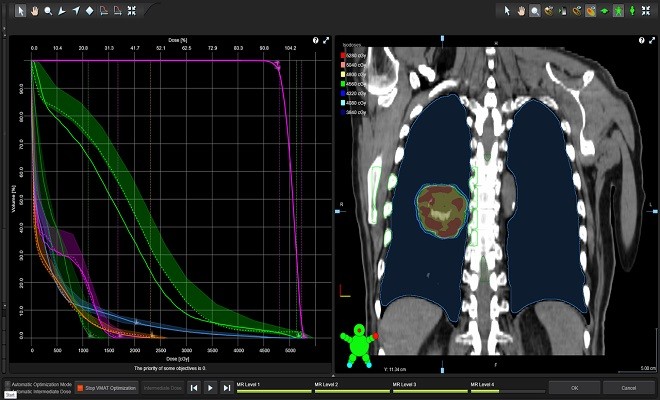By attuning AI algorithms to the specific needs of clinicians and patients, the treatment times can be reduced, which can lead to an improvement in the quality of healthcare.

More people around the world are being diagnosed with cancer every year. This has prompted researchers and clinicians to continue to devise ever more effective and sophisticated techniques to combat the disease.
While this a huge challenge in terms of collection, processing and analysing of increasing amounts of patient data, a new AI-based tool has been developed that tackles this issue of data flood. Not only has this resulted in better patient outcomes and improved survival rates for most forms of cancer, but has also allowed cancer-care teams to make faster and better informed decisions.
RapidPlan
In 2014, a knowledge-based treatment planning system called RapidPlan was launched. The objective was to speed up the treatment planning and deliver more consistent results by using machine learning to create pre-configured treatment plans based on data obtained from previous clinical experience.
Presently, this software uses dose and anatomy information from existing plans to predict a more optimal dose distribution for new patients, based on their specific anatomy.
Corey Zankowski, senior vice-president of Oncology Software Solutions, Varian Medical Systems, said that RapidPlan has created consistent and high-quality plans for personalised radiation therapy, through leveraging clinical expertise and thus quickly building the right plan.
The capabilities of RapidPlan can be further enhanced by combining it with multi-criteria optimization (MCO), a tool that allows clinicians to explore what happens when they alter different clinical criteria. This can enable oncologists to better optimise treatment plan based on the uniqueness of each patient and their condition.
Suzanne Currie, medical physicist and clinical scientific lead, Beatson West of Scotland Cancer Centre, Glasgow, UK stated that while RapidPlan helps us know what should be achievable for a patient based on previous plans, MCO can help us tailor that plan based on the individual patient’s unique clinical circumstances.
Medical treatment of the future
This is just the beginning of what will be possible with AI in healthcare.
Intelligent software possesses the ability to enhance the way clinicians use to assess a specific treatment plan. This allows any adjustments to be made more quickly and so improve the efficacy of the treatment.
Further in the future, AI could also be used to mine large clinical datasets to detect early signs of patients who are responding to treatment, and those who are not.










